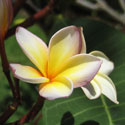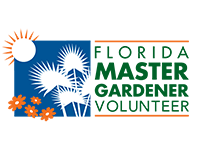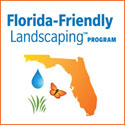The Neighborhood Gardener – July
Happy Gardening!
Stormwater Runoff
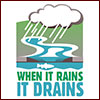 Summer marks the beginning of Florida's rainy season, which means lots of water could be running through your landscape. While it's great for most plants, the rainwater running off your landscape is not so great for our water supply. What most people don’t realize is that water running through storm drains doesn’t go to a treatment facility like the wastewater from homes does. There are a number of things you can do to keep water in your landscape and ensure that the runoff that does leave is as clean as possible. More
Summer marks the beginning of Florida's rainy season, which means lots of water could be running through your landscape. While it's great for most plants, the rainwater running off your landscape is not so great for our water supply. What most people don’t realize is that water running through storm drains doesn’t go to a treatment facility like the wastewater from homes does. There are a number of things you can do to keep water in your landscape and ensure that the runoff that does leave is as clean as possible. More
New Gardening Web Tools From UF/IFAS
Gardening decisions are now easier with the release of new mobile web tools from the University of Florida's Institute of Food and Agricultural Sciences. The Florida-Friendly Landscaping Plant Guide is a web-based mobile application with information on more than 400 plants, and Landscape Pests lets users identify pests by plant or damage symptoms. More
Plant of the Month: Evergreen Wisteria
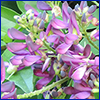 Evergreen wisteria is not only a beautiful vine, it's also an excellent alternative to the more commonly seen Chinese wisteria, which is invasive. Sometimes called summer wisteria, this plant thrives in USDA zones 8 to 10 and will grow best in areas with full sun, but will tolerate partial shade. It will adapt to most soil pHs and can grow in any soil type, so long as it is well drained. More
Evergreen wisteria is not only a beautiful vine, it's also an excellent alternative to the more commonly seen Chinese wisteria, which is invasive. Sometimes called summer wisteria, this plant thrives in USDA zones 8 to 10 and will grow best in areas with full sun, but will tolerate partial shade. It will adapt to most soil pHs and can grow in any soil type, so long as it is well drained. More
July in Your Garden
Use summer heat to solarize the vegetable garden for fall planting. It takes 4–6 weeks to kill weeds, disease, and nematodes, so start now.
For more month-by-month gardening tips, check out the Florida Gardening Calendar. Three different editions of the calendar provide specific tips for each of Florida's gardening regions—North, Central, and South.
Friend or Foe? Foe: Asian Cycad Scale
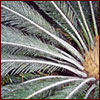 The Asian cycad scale put a major dent in the sago population throughout Florida, but the problem is seeing something of a decline. The damage from these tiny sucking insects initially appears as yellow or bleached-looking spots, eventually making the leaves brown and crispy. But the introduction of two beneficial predators, along with use of horticultural oils, is slowly making a difference. More
The Asian cycad scale put a major dent in the sago population throughout Florida, but the problem is seeing something of a decline. The damage from these tiny sucking insects initially appears as yellow or bleached-looking spots, eventually making the leaves brown and crispy. But the introduction of two beneficial predators, along with use of horticultural oils, is slowly making a difference. More
Success Stories
- We're looking for inspiring, Florida-Friendly success stories from your county. Submit yours today to Wendy Wilber.

